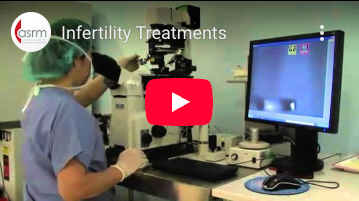Our Fertility Treatments
At Loma Linda University Center for Fertility & IVF, we recognize that no two patients are alike. As a result, fertility treatment plans vary based on the patient’s medical history, diagnosis, age, duration of infertility and personal preferences.
In many cases, basic infertility treatments such as natural cycle monitoring, ovulation induction, intrauterine insemination (IUI) and instruction on timed intercourse are indicated. Many patients require advanced reproductive treatment, and the LLU Center for Fertility excels in performing such assisted reproductive technologies, including in vitro fertilization (IVF), intracytoplasmic sperm injection (ICSI), cryopreservation, preimplantation genetic screening (PGT-A) and preimplantation genetic diagnosis (PGT-M).
After the doctor has completed the patient evaluation, which will include the results obtained from laboratory tests and physical and ultrasound examinations, the doctor and patient can discuss a personalized treatment plan designed to optimize chances for pregnancy.
Request an Appointment Contact Us
Basic fertility treatments
Natural cycle monitoring involves a few weeks of transvaginal ultrasound monitoring and bloodwork to determine the woman’s natural menstrual cycle.
Intrauterine insemination (IUI) is a form of artificial insemination that places the male’s sperm directly into the woman’s uterus to improve chances of fertilization.
Ovulation induction utilizes fertility drugs to help a woman produce eggs and ovulate.
Learn more about basic fertility treatments
Advanced fertility treatments
In vitro fertilization (IVF) is the laboratory process in which the male sperm fertilizes the female egg outside the woman’s body, and the resulting embryo is implanted in the woman’s uterus.
Intracytoplasmic sperm injection (ICSI) places a single sperm directly into the female egg’s cytoplasm where fertilization occurs.
Assisted hatching involves the use of a laser to open the embryo’s membrane to facilitate embryo attachment to the lining of the uterus.
Embryo transfer is implanting the embryo fertilized through IVF into the mother’s uterus. Elective single embryo transfer (eSET) is the practice of choosing to implant only one, very healthy embryo instead of two or more, which puts the mother at risk for a multiple pregnancy.
Polycystic ovary syndrome (PCOS) can cause infertility. Treatment generally includes medications that reduce testosterone production and other treatments such as IVF to achieve pregnancy.
Preimplantation genetic testing
Preimplantation Genetic Testing for Aneuploidies (PGT-A) previously called PGT-A, tests for multiple chromosome-related genetic issues in an embryo prior to implantation in the woman’s uterus during an IVF cycle.
Preimplantation Genetic Testing for Monogenic/Single-Gene Disorders (PGT-M) previously called PGT-M, evaluates an embryo for a specific genetic disorder eg. muscular dystrophy that the parents are suspected of carrying that may have been passed to the embryo
Preimplantation Genetic Testing for Chromosomal Structural Rearrangements (PGT-SR) looks for specific inherited chromosome abnormalities in the embryo eg. Robertsonian translocations.
Holistic fertility
Holistic fertility addresses the body, mind and spirit as integral aspects of health and fertility and includes:
Understanding Infertility – The Basics
A series of patient education videos by the American Society for Reproductive Medicine.
Donation & surrogacy services
Egg donation is when a woman donates some of her eggs to be used in assisted reproduction. If a woman does not have viable eggs, she may use donated eggs to become pregnant.
Sperm donation is when a man donates his sperm to be used in assisted reproduction. Couples with male factor infertility or women looking to get pregnant without a male partner may use donated sperm in conjunction with artificial insemination to conceive.
Embryo donation is when a couple chooses to donate their remaining embryos after an IVF cycle. Embryos can be cryopreserved and then later implanted in a recipient mother’s uterus.
Surrogacy can involve a traditional surrogate mother or a gestational carrier combined with IVF. Surrogates may be used when the female partner cannot carry a pregnancy to term due to a number of possible health factors.
Surgical infertility treatments
Some causes of infertility in women can be corrected by surgery including endometriosis, fibroids, polyps and other problems in the reproductive organs. Fertility surgeries are often performed via hysteroscopy or laparoscopy.
Tubal ligation reversal, a laparoscopic procedure can unblock or open a woman’s fallopian tubes after she has had a tubal ligation surgery. This allows sperm to reach the woman’s eggs so she may become pregnant.
Fertility surgery can also treat varicocele or restore male fertility after a vasectomy in men, improving the chances of conceiving naturally.
Fertility preservation treatments
Cryopreservation involves procedures to freeze eggs, sperm and/or embryos for storage and future use in assisted reproduction.
We also offer fertility preservation services for women diagnosed with cancer, since cancer treatments, such as chemotherapy and surgery, may affect future fertility.
We also offer extensive fertility testing and diagnosis services for men and for women.
Why Choose Loma Linda University Center for Fertility & IVF?
Loma Linda University Center for Fertility & IVF is one of Southern California’s longest standing fertility clinics. For more than 25 years, we have taken on some of the most complex infertility cases in the Riverside-San Bernardino metro area, including treating patients other fertility clinics refer to us. In other words, we explore all possibilities and techniques to give you, our patient, the best chance of having a baby.
